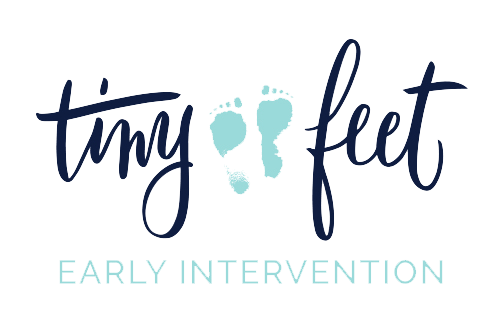The first thing that should be mentioned is that all children develop differently. While one child learns to walk at 9 months, another may not be walking until 13 months. Even our bi-annual assessment has a range shown for each skill (i.e. Names one or two familiar objects, 13-18 months). Children develop on their own timeline, and often this is within the normal range. However, the concern arises when there is a more significant delay in the acquiring of skills, which we call "red flags." Spotting concerns sooner rather than later is key if your child does have a true developmental delay.
My goal is to give you a resource of when skills should acquired. If your child is not developing within these "normal" time-spans, you can discuss concerns with your pediatrician. Sometimes doctors recommend waiting to see if skills emerge on their own. However, as a parent you can refer your child for Early Intervention services on your own if you continue to have concerns. Please see our Referral page or feel free to give us a call! We would be more than happy to help you get connected and assist in making the referral!
Common signs of Development Delay in Infants & Children:
Language/Communication Skills (Speech)
- 3-4 Months: Does not respond to loud noises
- 4 Months: Begins babbling but does not try to imitate sounds
- 7 Months: Does not respond to sounds
- 1 Year: Does not use any single words (like "mama")
- 2 Years: Cannot speak at least 15 words, does not use two-word phrases without repetition, only imitates speech, does not use speech to communicate more than immediate needs
Gross Motor Skills
- 4 Months: Does not support his or her head well, does not push down with legs when his or her feet are place on a firm surface
- 5 Months: Doesn't roll over in either direction
- 6 Months: Cannot sit up without help
- 7 Months: Stiff or very floppy muscles, flops his or her head when pulled into a sitting position, does not bear weight on his or her legs when you pull him or her up to a standing position
- 1 Year: Does not crawl, drags on side of his or her body while crawling, cannot stand when supported
- 18 Months: Cannot walk
- 2 Years: Does not develop a heel-to-toe walking pattern or only walks on toes, cannot push a wheeled toy
Fine Motor Skills
- 3-4 Months: Does not reach for, grasp, or hold objects, does not support his/her head well
- 7 Months: Reaches with one hand and does not actively reach for objects, has trouble getting objects into his or her mouth
Social/Emotional Skills- How a child interacts with other children and adults
- 3 Months: Does not smile at people, does not pay attention to new faces, or seems frightened by them
- 5 Months: Cannot be comforted at night, does not smile without prompting
- 6 Months: Does not squeal or laugh
- 7 Months: Refuses to cuddle, shows no affections for parents or caregivers, shows no enjoyment around people
- 8 Months: Shows no interest in games of peek-a-boo
- 9 Months: Shows no back-and-forth sharing of sounds, smiles, or facial expressions
- 1 Year: Shows no back-and-forth gestures, such as waving, reaching, or pointing
Cognition Skills- Thinking
- 1 Year: Does not search for objects that are hidden while he or she watches, does not use gestures (i.e. waving), does not point to objects or pictures
- 2 Years: Does not know the function of common objects (i.e. hairbrush, telephone, spoon), does not follow simple instructions, does not imitate actions or words
Studies show that 10-15% of children under age 3 had a developmental delay. Your child may have a delay in one, two, or all of these areas. Early Intervention can make a huge difference for children with developmental delays. One study found that only 3% of kids were getting appropriate attention.
If you have concerns about your child's development, please speak up! Follow your instincts. At Tiny Feet Early Intervention, we understand that you are the expert on your child!
Sources:
Boyle CA, et al. 2011. Trends in the Prevalence of Developmental Disabilities in US Children, 1997-2008. Pediatrics 127(6):1034- 42 http://pediatrics.aappublications.org/content/117/6/2304.full.pdf+html
AndrewG1999. "Know If Your Baby Is Developing Normally." WikiHow. N.p., n.d. Web. 28 Oct. 2016
"Recognizing Developmental Delays in Children." WebMD. Ed. Smitha Bhandari. N.p., 31 May 2016. Web. 28 Oct. 2016.


